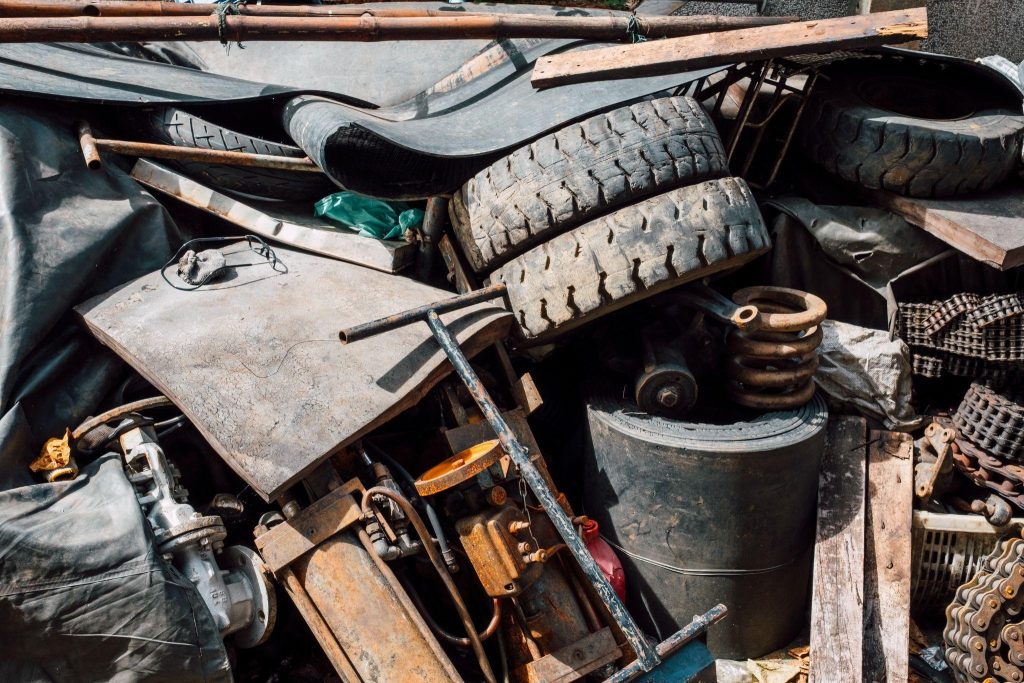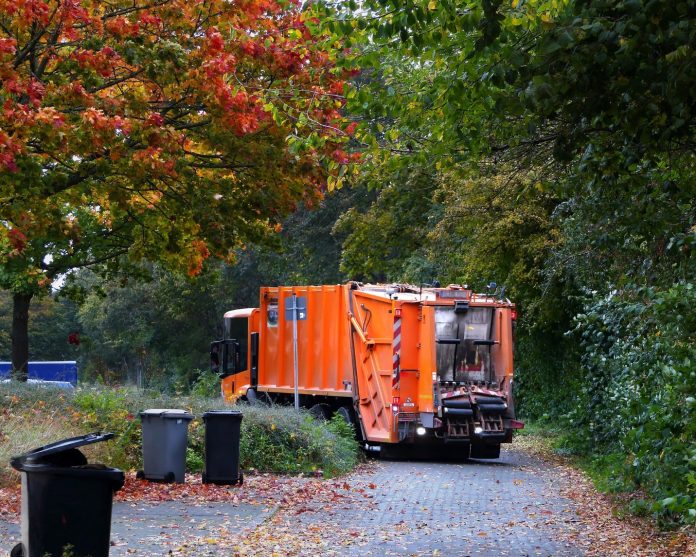As neighborhoods strive to provide safe, healthy, and cooperative living environments for residents, “Pickup Junk for Good” programs play an important supporting role. These waste removal services organized at the community level address multiple priorities around tidiness, charitable support, sustainable habits, public health, and neighborly unity.
These initiatives offer convenient junk collection, preventing trash buildup and benefiting partner charities by donating reusable goods, which in turn supports their social missions.
Long-term environmental sustainability is another priority, as reuse and recycling are emphasized over discarding when possible. Perhaps most importantly, these endeavors bring neighbors together to beautify their shared living spaces.
Comprehensive support for neighborhood wellness is provided by addressing junk removal alongside community, charitable, and environmental benefits, benefiting both residents and municipalities through cooperative waste diversion.
They Help Rid Neighborhoods of Trash and Debris

“Pickup Junk for Good” services play an important role in keeping residential areas clean, safe, and pleasant for residents. Large item collection services, also known as bulk waste removal, give households an easy solution for discarding unwanted bulky items weighing more than 50 pounds that cannot fit in regular garbage bins. This type of junk often accumulates in alleys, under porches, or in backyards if left unremoved.
These programs collect items like furniture, mattresses, appliances, electronics, bicycles, and more at the end of their usable lives. Some services also accept yard waste. Without proper disposal options, these bulk trash piles can become eyesores and health hazards if they attract pests or wildlife.
Bulk waste pickup is vital for those in apartments, condos, or homes without private dumpsters to prevent illegal dumping. These services typically provide curbside collection with no heavy lifting for residents. Subscribers only need to place their collected items at the curb on the scheduled pickup date. Visit https://www.statista.com/topics/4983/waste-generation-worldwide/#topicOverview for global waste trends.
For cities and municipalities, organized neighborhood collection maintains a higher standard of cleanliness. Fewer dumpsites mean less taxpayer money spent on cleanups and increased safety as well. Neighborhood drives and walks remain more pleasant for all, with one less nuisance to sidestep or drive around.
With important benefits like these, bulk waste removal through “Pickup Junk for Good” plays a key supporting role for communities. Residents appreciate the simple solution, while local leaders value the impact on visual aesthetics, health concerns, and government budgets.
They Support Charitable Causes
When furnished goods are still usable but no longer wanted, donating them is an environmentally friendly alternative to throwing items away. Many “Pickup Junk for Good” services recognize this opportunity by partnering with local charities and non-profits to collect donations.
Some examples of groups that frequently receive furniture, small appliances, clothing, and other household items include homeless shelters, domestic violence support centers, animal rescue organizations, and thrift stores operated by charities. Donated goods that are in good condition can be resold in these thrift stores, raising funds for the partner cause.
Adopt-a-Family programs, which provide holiday gifts and essentials to families in need, also benefit from donated consumer goods collected through neighborhood junk pickups. Gently used gifts mean these families receive practical necessities without spending charity dollars on all new items.
Funds from donations can support various needs like veterinary care for pets, rent assistance for domestic violence survivors, or meal programs for the homeless. Some services also multiply the impact of collected junk sale proceeds through donation matching drives.
Partner non-profits appreciate the synergistic partnership as it diverts reusable items from the waste stream while generating income to further their important social missions. For communities, it provides the added benefit of philanthropically supporting neighbors most in need through a simple donation collection service.
They Encourage Sustainable Habits
While junk removal programs aim to prevent usable goods from going to waste, the ultimate goal is resource preservation overall. By diverting reusable and recyclable materials from landfills, “Pickup Junk for Good” services directly support the priority of sustainable waste management.
Items like furniture, appliances, and building materials collected through these neighborhood programs are checked for integrity. Those still in good condition are reliably refurbished by partner organizations and then sold at low prices through thrift stores. This extends the lifespan of quality goods, keeping them out of landfills for longer.
For items unable to be repaired or donated, recycling remains the priority end-of-life management method. Materials like metal, glass, and certain plastics retain value even after previous consumer use. Through processing, these extracted resources can reenter production supply chains rather than occupying finite landfill space.
Discouraging illegal dumping habits through convenient, stigma-free junk disposal also helps protect local environments. Rats and contaminants associated with off-grid piles threaten ecosystems if not contained properly. Organized collection circumvents these issues before they arise.
Long-term, supporting sustainable initiatives like the 3 Rs of “Reduce, Reuse, Recycle” through waste diversion programs lowers environmental impact. Residents learn responsible consumption habits while caring for shared public infrastructure and natural resources for the community’s future generations.
By solving junk removal through these higher-purpose means, “Pickup Junk for Good” instills healthy, sustainable behaviors alongside community, charity, and environmental benefits. Holistic solutions should always be prioritized for community well-being.
Reduced Health and Safety Hazards
When bulk materials and trash accumulate unchecked, public health risks can emerge without proper removal systems in place. Stagnant water and damp areas that result from junk piles provide the ideal breeding ground for mosquitoes, which can spread viruses like West Nile, Zika, and encephalitis to humans.
Additionally, scattered litter and rotting debris attract pest animals such as rats and raccoons that may harbor diseases transmissible to pets and people. With increased interaction in areas near unsanitary sites, the potential for human infection from these organism vectors grows over time.
Beyond biological threats, accumulated junk also poses physical safety hazards. Broken furniture, construction materials, and abandoned bicycles or toys left in alleys or open areas introduce potential risks for lacerations, punctures, or falls for community residents and visitors. Children playing outdoors are particularly vulnerable.
Regular collection through “Pickup Junk for Good” services helps to minimize these public health dangers proactively. Keeping neighborhoods clean prevents conditions perpetuating illnesses while removing potential physical injury risks from areas where people live and walk. This protects community health and well-being.
Removing excess waste materials and debris also helps curb residential fire risks, as bulk items can fuel accidental blazes if ignited near homes or businesses. With fewer fuel sources readily available, pickup programs bolster safety from this threat as well.
Strengthens Neighborhood Pride and Unity

There’s a strong social component to community cleanups organized by “Pickup Junk for Good” services. By collaborating on beautification projects together, residents get to interact with their neighbors while improving shared public spaces. This fosters a sense of shared ownership and pride in the neighborhood.
Coordinated litter removal days, junk collection sign-ups, and bulk item drop-offs bring people together for a common purpose. New social connections are formed through cooperation that extends beyond just the cleanup tasks. As familiar faces from the blocks get to mingling, a tighter-knit neighborhood dynamic results.
With increased familiarity comes enhanced accountability, too. Residents caring about their community are less likely to mar public areas with trash or eyesores themselves. A culture of respect and collective responsibility grows from working as a team through these initiatives.
For elderly or disabled residents unable to participate directly, seeing neighbors donate time and effort still cultivates goodwill and social bonds. No one feels overlooked in a community actively improving common areas together. A more socially cohesive atmosphere emerges overall.
Younger generations also get positively involved through service requirements at local schools or clubs. Life lessons in environmental stewardship and citizenship are learned through real-world cleanup experience. Stronger future communities result.
Bottom Line
It’s clear that “Pickup Junk for Good” programs provide far-reaching benefits beyond basic bulk waste removal. By prioritizing environmental sustainability, charitable partnerships, public health, and social cohesion alongside convenient collection, these initiatives offer holistic community support.
Neighborhoods stay cleaner, safer, and more attractive for all when organized services prevent junk from piling up unchecked. Charitable causes receive much-needed resources to assist those in need through donated goods and donation drive income. Landfill reliance lessens as reusable materials rejoin the economy through repair or resale networks.
Perhaps most importantly, these endeavors bring neighbors together to care for shared spaces. By strengthening social ties in the process, residents form a culture of collaborative responsibility and pride for their streets and blocks. Younger generations also learn civic lessons that cultivate lifelong stewardship habits.


